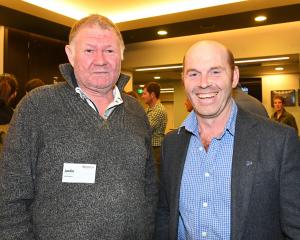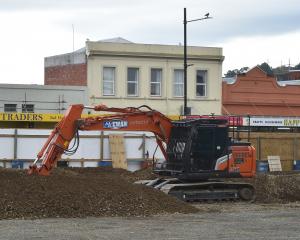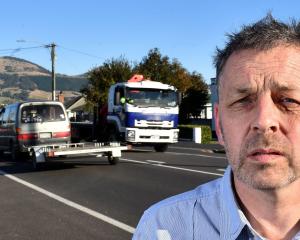The legislation set to amalgamate rural and urban fire services was a hot topic at a Dunedin conference for nearly 100 southern "chiefs and deputies'' at the weekend.
New Zealand Fire Service Otago-Southland manager Dave Guard said 94 delegates representing 53 urban volunteer brigades and 13 rural volunteer forces attended a two-day leadership conference in the Fullwood Room.
The delegates at the biennial conference came from between Omarama and Stewart Island.
The main topics of the meeting included volunteering, community engagement and the legislation to establish a new organisation, Fire and Emergency New Zealand (Fenz) on July 1 next year.
The legislation amalgamates rural and urban fire services.
"We have urban and rural firefighters [at the conference] so we are not waiting until July to become more integrated - we already are. This part of the country operates really, really well in that respect already.''
Mr Guard supported the legislation change.
"Absolutely - it's the right thing to do.''
If crews had any concerns, it was what changes the amalgamation could bring.
"We recognise that urban fire and rural fire have two separate cultures - so you are merging cultures - and we are very conscious of the fact that we need to be respectful of those cultures.''
Yesterday, a strategic leadership team from New Zealand Fire Service national headquarters talked about the transition to Fenz.
Following the first reading of the Fire and Emergency New Zealand Bill earlier this month, Internal Affairs Minister Peter Dunne released a discussion document on new fire services regulations as part of the reform.
The public could give feedback on the funding regime for the new organisation, including on what property should be exempt from the levy, Mr Dunne said.
Mr Guard said the regulations supporting the new legislation were "very important''.
"The key issue with the change in approach to levy is to close loopholes that commercial businesses have tended to use in the past to avoid paying the Fire Service levy.''
The Fire Service was 100% funded by the levy so it was important to "get everything we can'', otherwise the burden of levy fell on residential insurance holders, Mr Guard said.
The closing of the loopholes would ensure "a fair and even contribution'' of levy to the Fire Service.
"Rather than smart people getting out of it,'' Mr Guard said.
The consultation closes on August 18.












